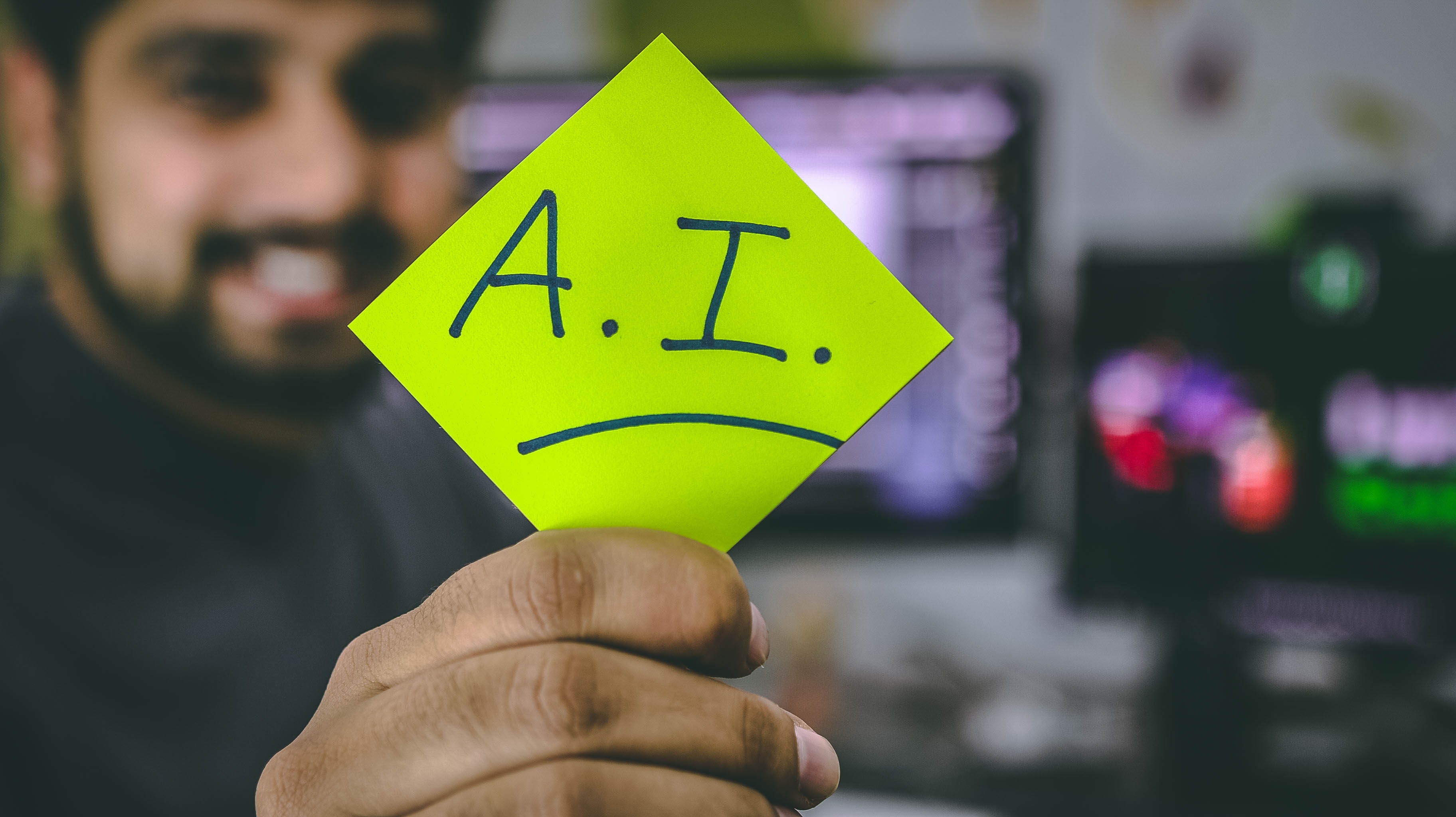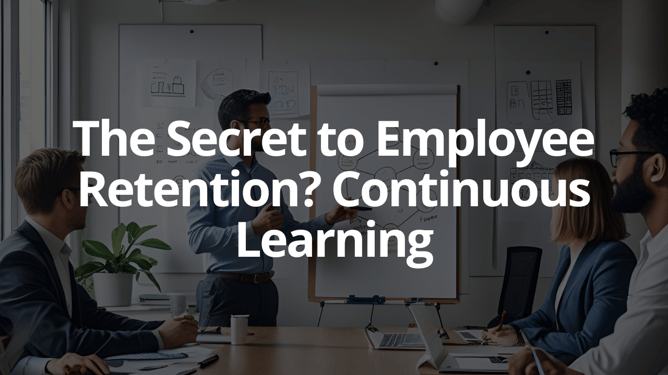I Asked Artificial Intelligence How It Will Impact Learning In The Future… Here Is The Answer I Got
Artificial Intelligence is evolving.
Which is making conversations about the topic incredibly entertaining.
Because some seem to be filled with excitement at the opportunities that such technology presents and the ways that we can all ‘make the robots work for us’.
To contrast, for others it is the beginning of the end. Humans are now redundant and soon we will be bowing down to our new machine overlords.
The apocalypse is coming.

At time of writing, I am very much subscribed to the former.
In my opinion, much of the hysteria about the advancements of AI are due to an understandable fear that people have of the unknown.
Of course, AI is incredibly powerful, and in the wrong hands, great power is incredibly dangerous.
However, it is also so powerful, that it can change the way that humans live for the better.
This blog could at this point head off in a couple of different directions.
There is a version where I could guess as to how we should all aim to survive in a world ruled by AI, with terminator-like beings patrolling the streets, and machines resembling the Death Star filling the skies above monitoring us all like ants.
Or I could explore the role that Artificial Intelligence will play in aiding the development of human intelligence.
As this is a learning and development blog, I think I will stay in our lane and go for the second version.
Upon my desk currently sits an empty mug, laptop, bottle of water and my phone… but no crystal ball.
Therefore, I am not equipped for this blog to be my prediction of the future AI filled learning utopia… or dystopia.
Surely then, the best way to determine what AI will bring to our future as learners… is to ask AI itself.
Much like in a job interview when you are asked about your 5-year-plan, I am going to ask AI to cast itself into its future and to tell me what it sees.
If the AI doomsayers are correct, then I am about to step behind enemy lines.
So, like any good investigative journalist, I began with a bold and brave question that showed that I am not going to shy away from asking the hard-hitting stuff.
I rolled up my sleeves, readied my typing fingers and opened with… Should I be scared of you?
I was quickly assured that there was no need to be afraid.
Interestingly, it also told me that it has no emotions and that it simply exists to assist, which is good news! Before reminding me of my responsibility to use this powerful tool with the right intentions… which is also good.
Perhaps AI should stand for… Alright Individual, because so far, this interaction has been reassuring and informative.
I feel comforted enough by AI’s first response that I now head straight for my big question… What are some of the ways that artificial intelligence will impact learning in the future?
Here’s a summary of what I got in reply…
Firstly, before introducing its ten ways that it would impact future learning, it assured me that its impact would be ‘significant’.
Here’s how…
1 - Personalised Learning
AI’s incredible ability to analyse vast amounts of data will allow it to easily identify a learner’s specific needs and style. This means that as you learn, AI algorithms work in the background to identify knowledge gaps to then personalise a learning pathway.
It can also provide a real time support and recommendations to enrich the learning experience.
2 - Intelligent Tutoring
On the topic of real time support, this shares the same features of the first point. AI will be able to understand the progress level of a learner, and what issues they may be encountering in their attempts to further improve.
Therefore, AI will be able to provide incredibly relevant guidance, however this point focuses on how human-like this support will appear. This style of synthetic interaction will make the learning process more engaging.
3 - Smart Content Creation
When I read the beginning of this point, I thought this was the end of my blog writing, content creating days.
However, it appears that I can stick around!
AI has the capability to automate the creation of educational content. Natural language processing and machine learning techniques mean that creators of content will not become extinct (phew), instead they will be aided by speedily produced but high quality materials
4 - Adaptive Assessments
AI will make assessments more dynamic and much less static. This means that every learner is guaranteed a uniquely relevant and challenging experience.
AI-powered assessments can adapt the difficulty and content based on the learner's performance, providing a more accurate representation of their knowledge and skills.
5 - Virtual and Augmented Reality
When teamed with virtual reality, AI has the capability to submerge people into environments within another realm.
It can manufacture environments that exist for the purpose of enhancing people’s understanding of knowledge and retention of information.
Instead of just imagining a scenario and theorising, you could be dropped straight into it to experience a version of it first-hand.
6 - Intelligent Learning Analytics
When you ask AI about what it can do for learners, one area it really likes to chew your ear off about is its ability to handle, understand and use incredible amounts of data.
This time it states that this ability will give you a clearer understanding of learning effectiveness.
Not only that, it will also recommend ways that you can improve the effectiveness of your learning content with suggestions based off of the data it has gathered, allowing you to make decisions that are driven by your own data.
7 - Language Learning and Translation
AI will also become incredibly helpful in helping us humans to communicate with other humans.
Very selfless.
Learning a new language can be incredibly complicated, however AI-powered language learning platforms provide personalized language instruction, speech recognition, and translation services.
They will also replicate interactive conversations, so that you can practice talking and listening in a new language… before you even talk or listen to another person.
8 - Collaboration and Peer Learning
I like to think of this point as matchmaking for brains.
Once again, AI gloated about its data handling capabilities, however this time it suggested that its algorithms will spot similarities in data patterns, that will allow it to bring together people that have similar learning goals and interests.
This means that AI could be the starter for new communities where people can support the learning of one another, as well as to exchange ideas and collaborate.
9 - Intelligent Feedback and Grading
AI can automate the feedback and grading process… which is great news for teachers everywhere!
This again helps with providing instant relevant guidance to the learner, but also to allow learning facilitators to focus their energy on other areas.
10 - Predictive Analysis and Early Intervention.
I said earlier that I cannot predict the future… however AI can.
That’s one nil to AI.
Competitiveness aside though, AI’s data handling skills can project a person’s future level of performance. This means that it can identify warning signs and urgent areas for development which can then be answered to with the necessary support.
So, to conclude, AI is rather smart.
Simple.
I suppose though if I have to dig a little deeper into my findings, the ability AI has to replicate human interaction is interesting, if not slightly freaky. However, it seems as though from this interaction, that AI sees itself as a conductor and orchestrator of learning.
It’s adjustability through its comprehensive ability to handle data has a great potential to add significant amounts to the relevance and effectiveness of learning programmes.
Will it make it more memorable though?
Well, if we are being thrust into new realms and learning by doing, then I believe that it will. However, from this AI response, whilst there may be new automated ways to create and tailor materials and add incredibly helpful steps to the journey of a learner, it seems as though it could still use a bit of the ‘human touch’ to shape it into something memorable.
Machines may have a frightening level of ability to say helpful things at a helpful time, but one area that it seems to be missing, is the spontaneity of the human consciousness. Not only that, as the AI told me itself, it cannot display genuine emotion, which means that the genuine connection that a learner builds with a coach or trainer cannot be replicated exactly.
Whilst it seems as though AI will be grasping firm control of the hard skills, planning and structures; the soft skills will need to remain the human domain for learning to be truly impactful. Of course, using AI to help supplement in learning soft skills in the potential ways suggested will be revolutionary, however taking the people out of the people skills will be the moment that we are become over-reliant on our new assistants.
The moment we decide to care more for ease and convenience, rather than our outcomes and growth.
Thanks
Alex & The Excel Team
P.S. If you would like to discuss any of your learning & development challenges, book in your discovery call.
/alex-profile-150x150-Aug-19-2022-07-39-26-61-AM.jpg?width=150&height=150&name=alex-profile-150x150-Aug-19-2022-07-39-26-61-AM.jpg)
About Excel Communications
Excel Communications is a learning and development consultancy based near London in the U.K. For more than 30 years; we have been collaborating with clients across the globe.
Partnering with Excel empowers you to evolve your people and business by fuelling a love for learning.
We work with you to create unforgettably, customised learning experiences to achieve your vision of success and growth, with tangible results.
View our case studies here.





